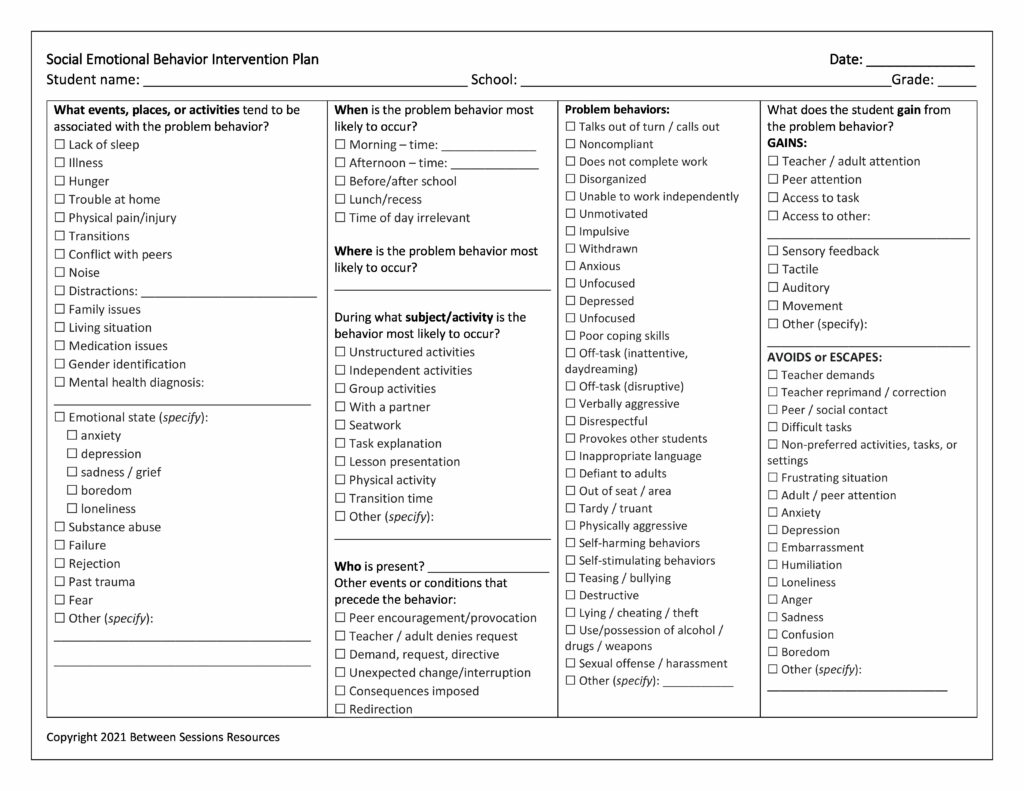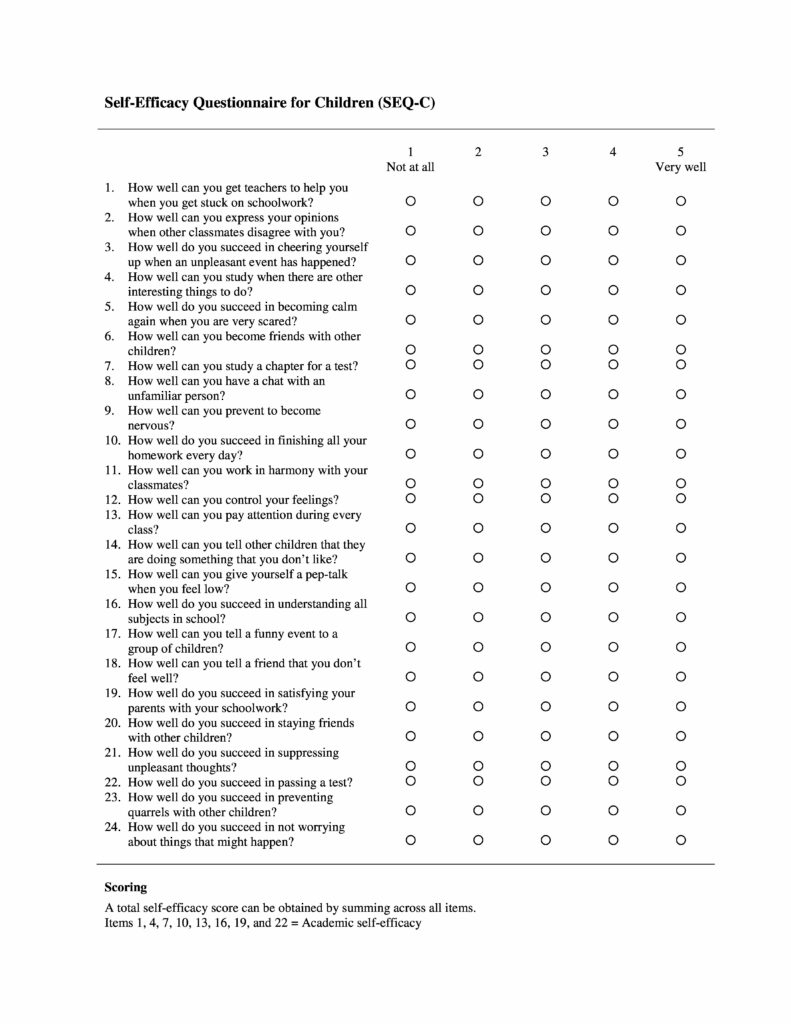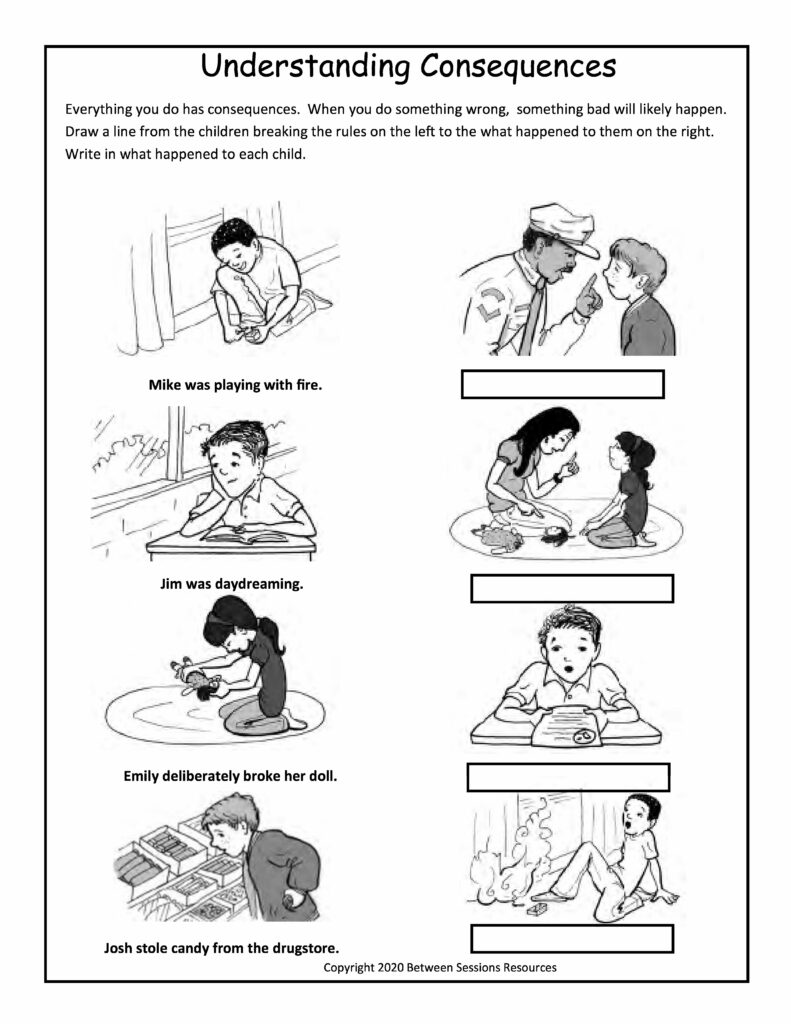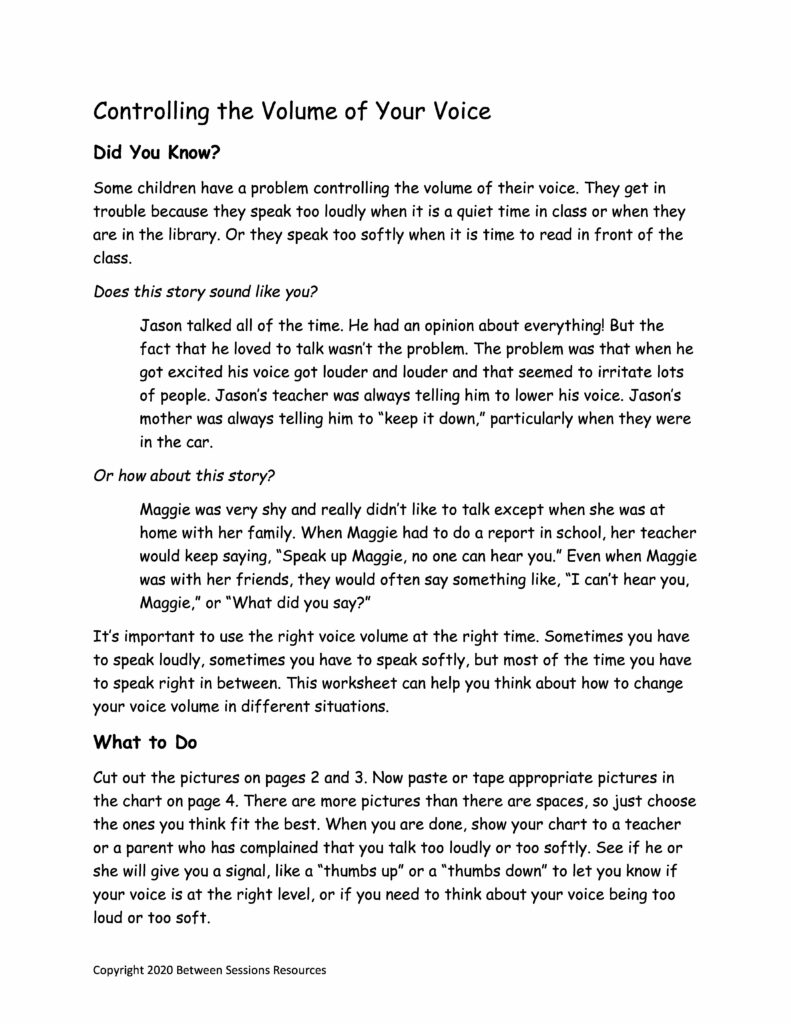This intervention plan can be used to assess different aspects of a student’s problem behaviors and record the responses to different behaviors. A progress monitoring graph is also included. (0421, behavior management, school problems, ADHD)
This 24 Item Scale measures the important trait of self-efficacy in children – the belief that one can accomplish tasks. A high self-efficacy score is associated with resiliency, academic achievement, and the ability to overcome problems. The scale helps you determine an overall score as well as sub-scores in academic, social, and emotional self-efficacy. (self-efficacy, behavior, assessment, parenting, 0421)
This worksheet is designed to help children understand how their behavior affects others. (0321, behavior problems, ADHD, social skills)
This worksheet asks children to think about the kinds of social problems that children may have (0221, social skills, ADHD, ASD)
This simple board game gives children the chance to practice giving compliments to others. (social skills, making friend, ADHD, Autism Spectrum Disorder, behavior, conversation skills, game, 0221)
This worksheet helps children understand that when doing a task, things need to be done in the right order. (executive functioning, ADHD, patience, 0221)
This worksheet is designed to children understand that there are consequences misbehavior and breaking rules. The worksheet asks them to match pictures of children breaking the rules to the appropriate consequences and to think about times they have had consequences for misbehavior. (ADHD, Oppositional Defiant Disorder, ODD, behavior problems, consequences, 1120)
– Teachers can hold up any one of these 10 cue cards to signal students top pay attention to their behavior. These cards can also be used with individual children in teletherapy. (ADD, behavior, classroom management, teletherapy, 1120)
This worksheet/game is designed to teach children the importance of using an appropriate voice volume. It asks children to match various scenes to a chart indicating the appropriate voice volume. (1020, ADHD, ASD, Autism Spectrum Disorder, Selective Mutism)
This activity is designed to help children learn how to conduct a give and take conversation. (social skills, ASD, ADD, communication, 0920)










